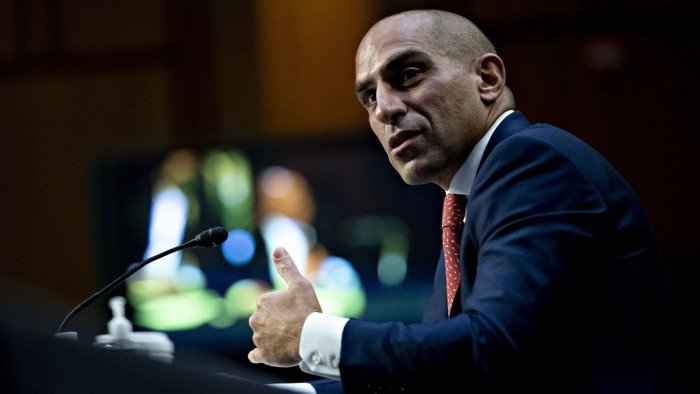Unlock the Editor’s Digest for free
Roula Khalaf, Editor of the FT, selects her favourite stories in this weekly newsletter.
The top US derivatives watchdog has warned against a regulatory “gap” for cryptocurrencies and called for more scrutiny of political betting markets.
Rostin Behnam, chair of the Commodity Futures Trading Commission, told the Financial Times he would step down on January 20, the day of president-elect Donald Trump’s inauguration.
Behnam led the CFTC for four years as it finalised the first federal guidelines for carbon offsets and deepened scrutiny of crypto and so-called event contracts, including those allowing bets on elections. He oversaw the watchdog’s 2023 lawsuit against crypto exchange Binance, which led to a $4.3bn settlement with US authorities.
But Behnam told the Financial Times he was concerned that regulation for digital assets, which include bitcoin and other cryptocurrencies, remained insufficient.
“You still have a large swath of the digital asset space unregulated in the US regulatory system and it’s important — given the adoption we’ve seen by some traditional financial institutions, the huge demand for these products by both the retail and institutional investors — that we fill this gap,” Behnam said.
He said the CFTC remained “well positioned to be a spot regulator for digital commodity assets”. The chair, who has close contacts and support in Congress, has vowed to use his influence to keep advocating for the agency to take that role.
The CFTC has traditionally focused on commodity derivatives, such as futures and options, rather than commodities themselves. But Behnam has argued that many digital tokens qualify as commodities and that regulating cash crypto markets would be a “natural fit” for the agency.
Trump has yet to nominate Behnam’s successor, but the president-elect has embraced digital assets and picked Paul Atkins, a crypto advocate, to lead the US Securities and Exchange Commission.
Behnam said he supported “comprehensive, strong regulation” for digital assets.
But “it is important not to take short-cuts”, he added. “It’s important to be very disciplined and intentional about how we write rules ultimately that are driven from the law.”
Crypto was at the heart of the CFTC’s highest-profile enforcement action under Behnam, when one of the country’s smaller regulators launched a lawsuit accusing Binance, the world’s biggest crypto exchange, and its chief executive Changpeng Zhao of operating illegally in the US.
Behnam told the FT he was concerned about the legality and social impact of bets on political and other events, a new market that flourished during the election.
The CFTC in 2023 barred Kalshi, a retail-focused futures market, from offering contracts that allowed investors to bet on congressional elections. A US judge lifted the ban after the company sued the agency.
“I have strong concern” around contracts related to elections, assassination, terrorism and gaming, Behnam said. As technology and high retail demand drive growth in these markets, “the line is going to be very blurred about what is legal, what’s illegal”.
Behnam called on his successor to bring a “renewed focus” to the issue, “so that we have more clear-cut lines of what we view as permissible and impermissible”.

